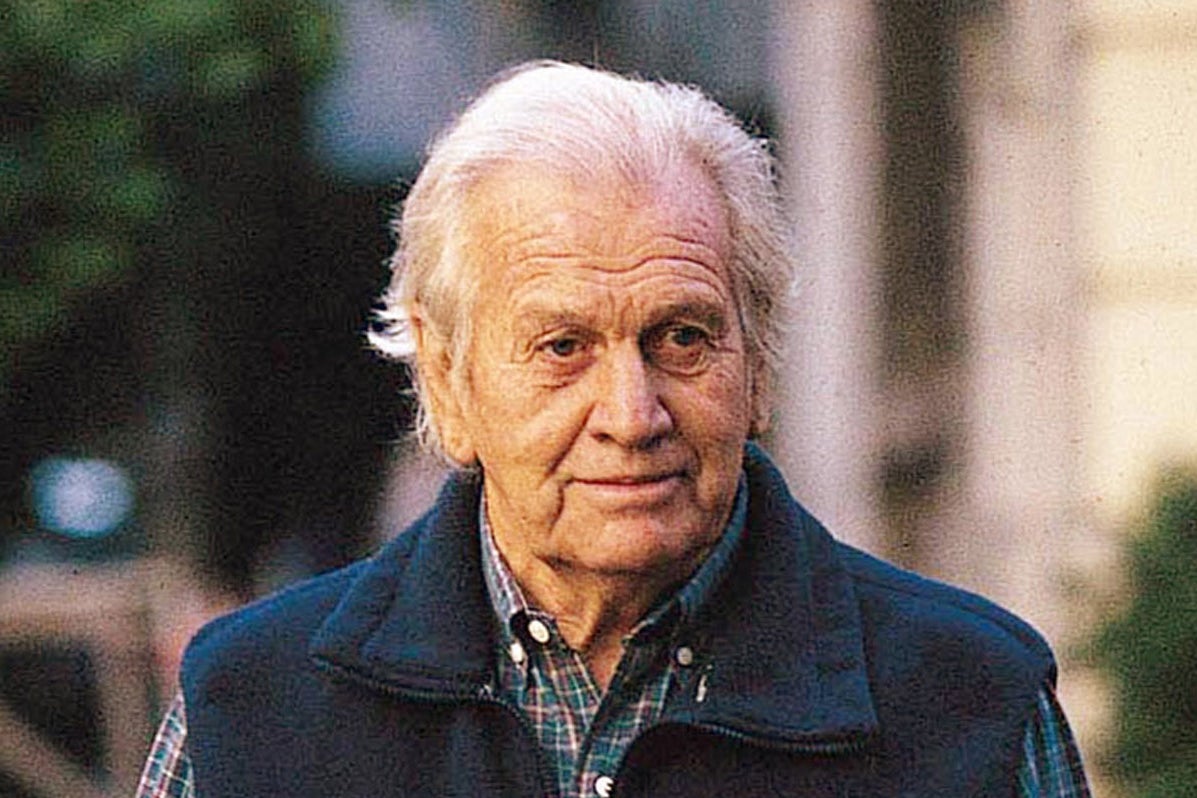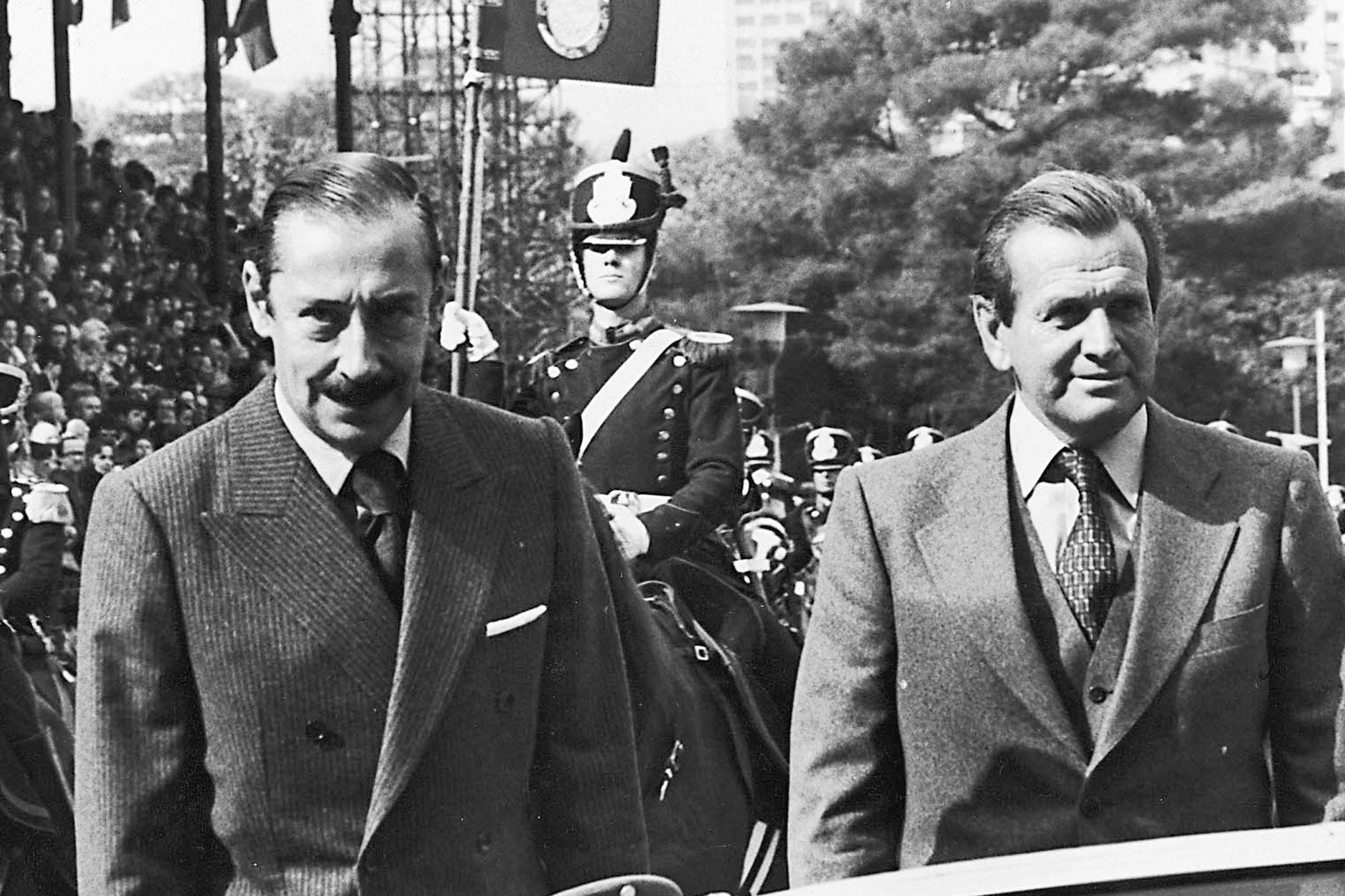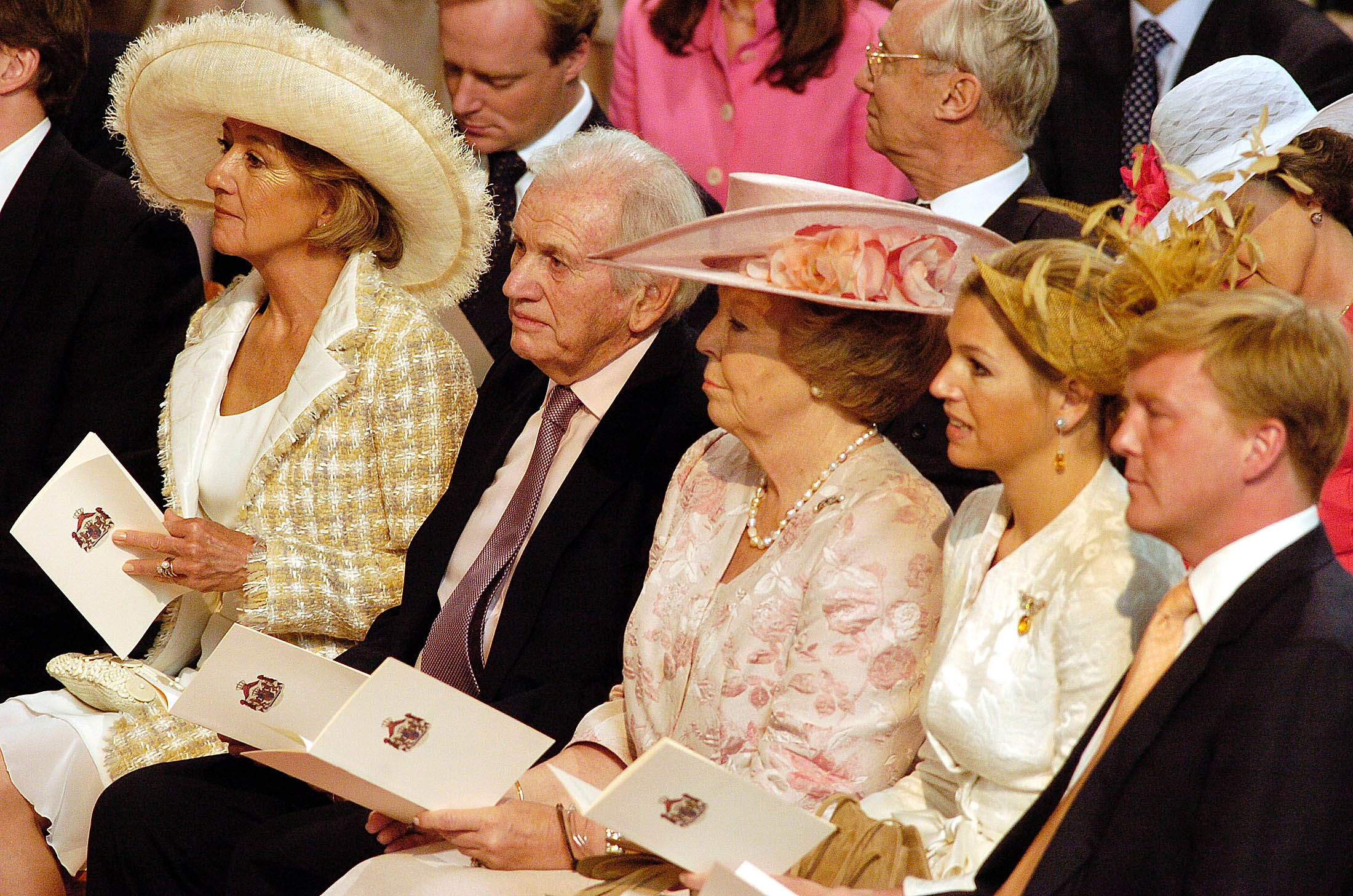Jorge Zorreguieta, 'dirty war' minister who couldn't escape his past
Zorreguieta's ties to Argentina's 1976 coup raised questions when his daughter became Queen of the Netherlands

Your support helps us to tell the story
From reproductive rights to climate change to Big Tech, The Independent is on the ground when the story is developing. Whether it's investigating the financials of Elon Musk's pro-Trump PAC or producing our latest documentary, 'The A Word', which shines a light on the American women fighting for reproductive rights, we know how important it is to parse out the facts from the messaging.
At such a critical moment in US history, we need reporters on the ground. Your donation allows us to keep sending journalists to speak to both sides of the story.
The Independent is trusted by Americans across the entire political spectrum. And unlike many other quality news outlets, we choose not to lock Americans out of our reporting and analysis with paywalls. We believe quality journalism should be available to everyone, paid for by those who can afford it.
Your support makes all the difference.Jorge Zorreguieta was a wealthy landowning Argentinian who was later shamed but not convicted for his role within the cabinet of the “dirty war” military junta during the 1970s and early 1980s. His past caught up with him again when his daughter was engaged to Prince Willem-Alexander of the Netherlands, now King.
Zorreguieta was told in no uncertain terms by the Dutch royal family that he was persona non grata at the couple’s 2002 wedding. In fact, Willem-Alexander and Maxima were allowed to marry only after the Dutch parliament investigated Zorreguieta’s past and concluded that – although he was most likely to have known of the dirty war atrocities – his daughter Maxima, at primary school during the junta years, had clearly done nothing wrong.
The couple were therefore free to marry but the father-of-the-bride could not walk her down the aisle, or even be present. Nor could he be at the couple’s investiture as King and Queen in April 2013, after the abdication of Queen Beatrix. Zorreguieta and his wife were, however, allowed to attend the christenings of their three granddaughters, since the Dutch government and parliament considered it a private, rather than a state matter.

Jorge Horacio Zorreguieta Stefanini was born in Buenos Aires on 18 January 1928 to a wealthy farming family. He married Marta Lopez Gil in 1956 and they had three children. In 1970, he married Maria del Carmen Cerruti Carricart, and they had three sons and a daughter, the eldest child being Maxima. Landowners and cattle farmers being key to the Argentine economy, they had influence in every walk of life, not least politics.
From 1961, Zorreguieta was a leading official in several agricultural bodies, including the Rural Agricultural Confederation, before being named vice undersecretary of agriculture in the 1976 military junta, headed by General Jorge Rafael Videla, which had ousted President Isabel Peron.
In 1979, he was promoted by Videla to under-secretary for agriculture and cattle-breeding. He was part of the Ministry of Economic Affairs, over which military officers had ultimate control. He remained in that post until 1981, making him part of the military junta for five of its seven years. All of this time, tens of thousands of Argentinians opposed to the junta, including farmers to whom his department had responsibilities, were disappearing, or “being disappeared” as Argentinians put it.

When news emerged that his daughter was to marry Prince Willem-Alexander of Orange, Zorreguieta understandably kept a low profile. But press coverage of his past induced him to make a long statement that included this: “The rule of Isabel Peron was one of economical, social and political chaos... the armed forces had to restore the peace in our country to create a stable and peaceful democracy. Like every father, it would be very important for me to accompany my daughter at her wedding. Contacts with the Dutch government, however, led me to the conclusion that controversies about my presence at the wedding could have a negative influence on the future role and position of my daughter as a member of the Royal House of the Netherlands.”
The Independent erroneously published an obituary of Zorreguieta in November 2014 after he was first admitted to hospital and Argentinian newspapers quoted friends as saying he had expired. In fact, he died of leukemia in Buenos Aires on 8 August. Queen Maxima flew incognito from the Netherlands to Buenos Aires to see him during his dying days (and Zorreguieta had flown quietly to the Netherlands in April to celebrate the 50th birthday of his son-in-law, King Willem-Alexander).
Zorreguieta is survived by his wife Maria, their daughters Maxima and Ines, sons Martin and Juan, and three daughters from his first marriage.
Jorge Horacio Zorreguieta Stefanini, farmer and politician; born 18 January 1928; died 8 August 2017
Join our commenting forum
Join thought-provoking conversations, follow other Independent readers and see their replies
Comments